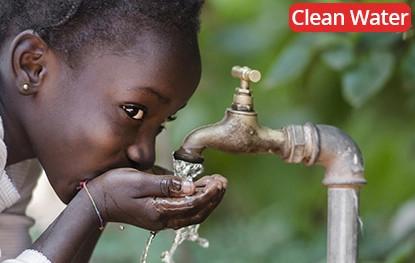22 March 2021
Water sources in Somalia are drying up at a rapid rate as a looming drought intensifies, leaving 70 percent of families across the country without access to safe drinking water. Thousands of children are now reliant on emergency water trucking and unprotected wells or are forced to leave their homes in search of water, according to a new assessment by Save the Children.[i]
The assessment, which covered 632 households across eight regions in Somalia, shows reduced rainfall and severe water shortages are also killing livestock, causing crop failures and diminishing household incomes, leaving children with fewer meals per day and less nutritious food.
More than half the families surveyed did not have enough food to eat and 84 percent of respondents said they were resorting to harmful ways to cope with the crisis, such as depleting their livestock reserves to buy food and reducing the number of meals they have per day. The loss of livestock also means children have less access to milk and this further exposes them to the risk of malnutrition.
Without immediate humanitarian assistance, the crisis is likely to peak in June with the number of children and adults in urgent need of support soaring to 5.9 million – an increase of 700,000 people compared to 2020, or a third of the population.[ii]
As the negative impacts of climate change intensify, the frequency and severity of extreme weather events in Somalia is increasing. In the past year alone, Somalia experienced severe floods, the most powerful cyclone to ever hit the country and now a looming drought. Communities are struggling to survive as they have no time to recover before the next crisis hits.
Shucayb, 12, says: “The drought has made it difficult for the community. We only have a little bit of water left and if that dries up, then the community will have to move to another place where there is water. I’d be sad if this happens because the school would close, and I’d have no choice but to go with my family.”
There has also been a devastating upsurge in locust invasions with swarms swiftly moving across the country destroying crops as they go and posing a huge threat to food security. Ninety-seven percent of families interviewed in the assessment said they had experienced at least one locust infestation. Conflict and the economic fallout of the COVID-19 pandemic are also taking a huge toll and pushing families to breaking point.
Canab, 37, was forced to leave her home with her children when locust swarms and the drought decimated the pasture and left her livestock – her only source of food and income – with nothing to eat. “The food shortage in our household has taken a toll on my children. My children have been vomiting and had diarrhoea for the past few days. Now they do not have a good appetite. I don’t have access to nutritious food like dates or oatmeal, hence why my children are malnourished and sick,” Canab said.
Via Save the Children
Statements, comments or opinions published in this column are of those of the author(s) and do not necessarily reflect the editorial policy of Warsan magazine. Warsan reserves the right to moderate, publish or delete a post without prior consultation with the author(s). To publish your article or your advertisement contact our editorial team at: warsan54@gmail.com

